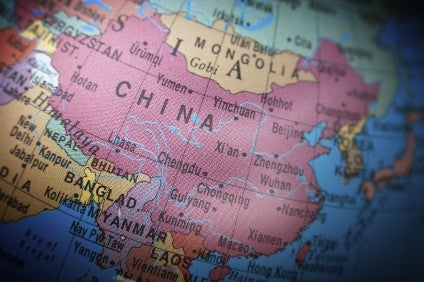
Issued by Beijing Public Security Bureau, the certificate indicates recognition for the Ellen MacArthur Foundation’s work in China and enables it to better collaborate with local stakeholders in the second-largest economy in the world.
The Foundation adds the registration will allow it work towards its mission to accelerate the global transition to a circular economy, with the guidance and support of the Ministry of Ecology and Environment.
“The concept of the circular economy is becoming increasingly prominent on policymakers’ agendas, and is being adopted by businesses at an ever-faster rate. The importance of China in this discussion cannot be overstated: circular economy was enshrined in law in 2008, and is a pillar of the Ecological Society vision. International collaboration is a prerequisite if we want to achieve scale, and the Foundation is delighted to see its Beijing Office officially registered. This important milestone will enable us to work even more closely with our Chinese partners, and contribute to a better dialogue on the global stage,” says Jocelyn Blériot, executive lead, institutions, governments and cities at the Ellen MacArthur Foundation.
Yisong Guan, the chief representative of the Foundation in China, adds: “We are delighted to have been granted the certificate. It’s great recognition for our work in China and globally. We have been promoting upstream innovation and the power of circular design anchored by the three principles of the circular economy; to eliminate waste and pollution, circulate products and materials, and regenerate nature, which are being increasingly adopted by our stakeholders and even reflected in relevant publications and policies.
“With the Chinese government announcing its carbon neutrality target, the circular economy will gain an even higher position on the political agenda. Building on this momentum, the Foundation will continue to work with its international and Chinese partners to help accelerate China’s transition towards a circular economy.”
In 2017, the Foundation started working collaboratively with partners in China, recognising the rising momentum in the country towards transitioning to a circular economy, supported by policy and industry initiatives.

US Tariffs are shifting - will you react or anticipate?
Don’t let policy changes catch you off guard. Stay proactive with real-time data and expert analysis.
By GlobalDataIn the years since, the Foundation says it has benefited from the support of local stakeholders, ranging from governmental organisations and think tanks to industry associations, prestigious universities, research institutes and businesses.
Working closely with local partners, the Foundation has provided expertise and insights, as well as exchange opportunities for the broader community that is driving the development and implementation of the circular economy in China.
The Foundation’s work in China is based on three key pillars:
-
Communicating the big idea of the circular economy as an innovation strategy and delivery mechanism for low carbon development
-
Engaging key actors: focusing on upstream measures, informing policymakers and leading businesses
-
Mobilising the plastics, fashion, and food value chains and facilitating circular demonstration projects
With its newly achieved legal certification, the Foundation looks forward to continuing to support China’s journey towards its vision of an Ecological Civilisation, and achieving its carbon neutrality and biodiversity targets through circular economy solutions.
A report published by the Foundation towards the end of last year, showed how circular business models offer significant potential for greater revenue, while cutting the volume of new clothing and accessories produced.



